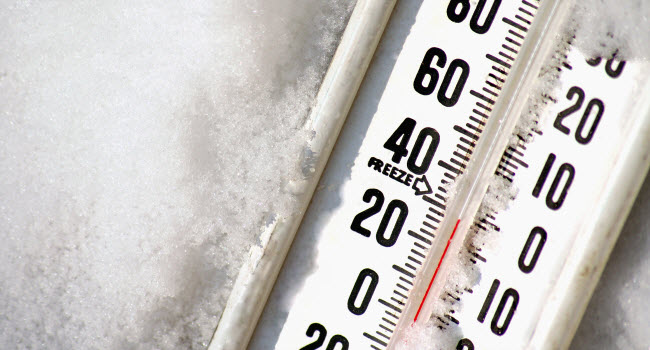Staying Safe and Healthy in Winter

As the British summer time passes us by and the leaves begin to fall... so do the temperatures!
This sudden drop down the mercury scale can cause many potential health & safety issues that warrant your attention, some of which are obvious and other not so much.
Yet again, Now U Know Training offers free, common sense advice and guidance with the aim of keeping you, your workforce, family & friends safe, healthy and warm during the winter months.
As with anything in life, planning and preparation are key; keep an eye on the weather forecast, take note of weather warnings and traffic alerts in your locality.
Winter motoring
Firstly, prepare your vehicle so that it can get you safely from A to B and to ensure that it can keep you safe in the event of an emergency. So, how should I prepare my vehicle for winter?
In extreme and severe weather conditions, do not even attempt a journey unless it is absolutely necessary.
Your vehicle has only four points of contact with the road - your tyres. Swapping for a set of winter tyres will improve grip, increase control and enhance stopping power. If adding a set of winter tyres isn't an option, ensure your current tyres are correctly inflated and have a good amount of tread.
Top up all fluid levels (including fuel!) and ensure you use a screen-wash that won't freeze and has plenty of cleaning power. The increase of salt in wintery road spray really occludes screen visibility and you'll rely on screen wash more during winter driving. Keep it topped up and always carry some spare (to avoid the overinflated prices at service stations!).
Never begin a journey until you have cleared all your screens both inside and out from frost, ice, snow and condensation; not forgetting to clear all mirrors and light clusters. Do not use water to clear the frost and ice as this can refreeze; instead physically remove frozen matter using a scraper and then treat with de-icer. Do not use wipers until the entire screen is defrosted or damage to the blades may result.
If you are able to keep your car in a garage overnight, your pre-journey preparation will reduce considerably; failing that, a screen protector is a good second best. Whatever you do, do not leave your car running whilst unattended as this will pose an obvious security risk.
What should I keep in my car during winter?...
- A warm coat, hat, gloves and sturdy footwear.
- High viz vest
- A few snacks and a drink
- Torch and batteries
- Small shovel
- Ice scraper and de-icer
- First aid kit
- And finally, sunglasses... to protect from the glare of low sun!
Your driving techniques should change to reflect the wintry conditions. Increase your distance from the car in front as stopping distances will lengthen; there is also an increased likelihood of unpredicted events and you will need enough time to react. Avoid harsh braking, instead use your gears to slow you gradually. Do not turn sharply or accelerate aggressively as a lack of control may result. Should you find yourself stuck or struggling for traction, select the highest gear possible to avoid "spinning out" and keep your revs low without stalling the engine... always try to keep the vehicle moving if possible to do so.
Winter clothing & footwear.
Whether you work outdoors or not, selecting appropriate clothing is essential for your comfort, health and safety.
Now, we're talking of only two points of contact with the ground; your footwear may be the difference between you remaining vertical or ending up horizontal!
Your usual heels or brogues may need to be swapped for trainers, walking boots or safety footwear. What you require is increased grip and warmth; other benefits to look for would include ankle support and waterproofing. You can always put your heels or brogues back on once you're safely through the office door! If you work in safety footwear anyway, winter is always a good time to treat yourself to a nice new pair... and guess what, we have a guide to safety footwear that can be found here.
It is widely believed that we lose most of our body heat through our head... but this is a debate for another time. Your head however is most commonly the only part of your body that is typically not clothed; a hat can and will keep you warmer. Your skin has a huge surface area and is integral in regulating the body's temperature, cover up as much of it as you can!
Whether you're working outside, walking the dog, riding your bike or on the school run, make sure that you can be seen; many modern clothing lines have photo-reflective inserts and these can be supplemented further by the use of wearable LED lighting.
Winter PPE
One type of PPE & RPE is often issued to be worn all year round when perhaps a little more consideration should be afforded. A key feature of PPE is that it is comfort, often meaning it is developed to be lightweight. A high visibility vest is a perfect example of this; maybe it should be swapped for a high viz waterproof, thermal bomber jacket during the winter months?
Thin, lightweight work gloves are great for dexterity... but don't offer much warmth when the temperature is around freezing point!
A hard hat can save your life but it is less effective if worn on top of a "woolly hat"; most manufacturers now offer inserts to improve thermal efficiency.
RPE will bed nicely into the face in warm conditions creating an effective seal... not so much in colder conditions!
Look at your PPE and assess if it’s suitable for winter.
Vibrating hand tools & circulation
As temperatures drop, your body diverts blood flow away from the extremities of the body to maintain a constant core temperature. A lack of blood flow to the hands can accelerate the damaging effects associated with using vibrating hand tools. Keeping the whole body (and hands!) warm when using drills, grinders, breakers and other vibrating hand tools is therefore essential!
Similar considerations should be afforded to your feet; whilst we'd hope frostbite isn't a consideration, cold feet can cause discomfort, pain and conditions such as chilblains. Sturdy, substantial footwear, coupled with the use of thermal socks, will avoid this unpleasantness.
Should I grit during ice and snow?
All employers should take reasonable steps to ensure the health and safety of its employees; clearing and gritting frozen surfaces, especially on walkways would be included in the "reasonable steps" bracket.
Bad press and poor reporting has scared many business owners away from gritting surfaces for fear of civil action or investigation from the HSE. The HSEs stance has always been to protect the safety of workers and the general public; treat the hazards of snow and ice as you would any other workplace hazard; risk asses it and you won't go far wrong!
- Plan ahead, treat surfaces in advance
- Divert footfall from badly affected routes
- Clear snow and ice by physical means, then treat with rock salt or similar
- Maintain any cleared routes
- Do not make the situation more hazardous by treating with water that could refreeze.
Don't just take this approach at work, do the same at home. If you have any vulnerable neighbours then why not clear their walkways at the same time as doing yours?
Remember, water freezes!
Apart from the obvious underfoot hazards, how could frozen water supplies effect your health and safety? You’re at work with no water...
- Have you got a supply of drinking water?
- Can you wash your hands?
- Are heating systems working?
- How can you suppress dust?
- Are effluent & drainage systems functional?
- Can you extinguish a fire?
You might be mistaken in thinking we don't like winter; we do! Winter is a magical & beautiful season and with a little forethought should be safe, healthy and most of all... enjoyable!
If you have enjoyed reading this article the please share by clicking the links below.
Tweet More Articles











